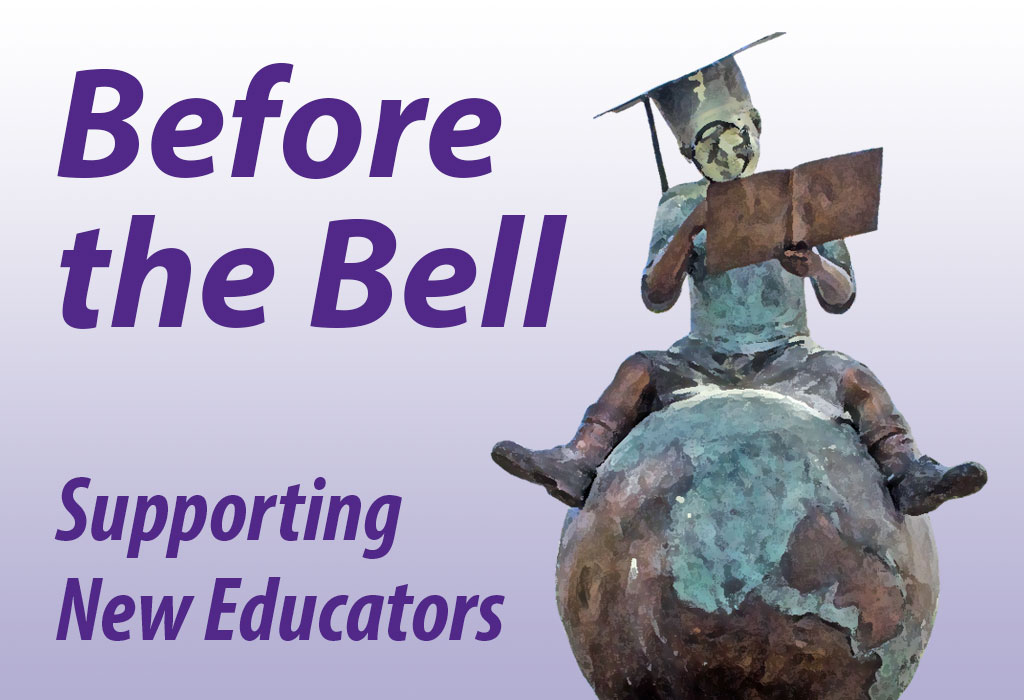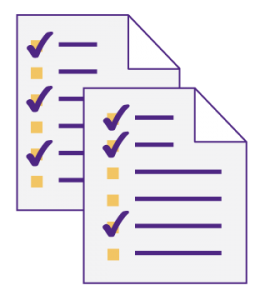Lori Goodson, Editor
Mary Hammel, Technical Editor
Category: November 2014
Try These Online Resources
 Are you looking for some valuable online resources for your students? Several Curriculum and Instruction faculty suggest the following:
Are you looking for some valuable online resources for your students? Several Curriculum and Instruction faculty suggest the following:
Dr. Brad Burenheide (Secondary Social Studies) —
- U.S. National Archives and Records Administration (NARA) (http://www.archives.gov)
- Gilder Lehrman Institute of American History (https://www.gilderlehrman.org)
- National Council for the Social Studies (NCSS) (http://www.socialstudies.org)
Dr. Tom Vontz (Elementary Social Studies) —
- Ed Teacher Tech (http://edtechteacher.org)
- Getty Images (http://www.gettyimages.com)
- Fact Monster (http://www.factmonster.com/encyclopedia.html)
Dr. Sherri Martinie (Secondary Math) —
- Illustrative Mathematics (https://www.illustrativemathematics.org)
- Mathematics Assessment Project – (http://map.mathshell.org/materials/index.php)
- NCTM Illuminations: Resources for Teaching Math (http://illuminations.nctm.org)
- Math Practice Standards resources (http://www.debbiewaggoner.com/math-practice-standards.html)
Dr. Vicki Sherbert (Secondary English/Language Arts, Speech/Theatre, Journalism) —
Dr. Phillip Payne (Music Education) —
- http://teachonline.asu.edu/objectives-builder/
- http://www.icompositions.com/
- iTunes and the App Store (these are changing every day and some are absolutely amazing!)
- Loopy and MadPad are two that are fantastic!
Dr. Tonnie Martinez (Curriculum and Instruction) —
Check out a Facebook page, “First Year Teacher Support,” she’s created at https://www.facebook.com/groups/607148596068041/
Get advice; give advice—this page is for YOU! Early career teachers can connect to ask questions, share ideas, and support each other in navigating the first years of teaching.
Opening the Door to Your Administrator
Hopefully, you have visited with your administrator about the formal evaluations. He or she can share the number of times you’ll be formally observed and the process.
Usually, you’ll have a pre-evaluation meeting, followed by the formal observation. After that, you’ll likely have a formal meeting. For this part, make sure you complete any required forms. In many districts, you’re required to provide a detailed lesson plan (and possibly a one-page, brief version), seating chart, a brief narrative regarding the class, and copies of any materials you use during the class. Include anything to help him or her “see” what’s going on in the class—and anything to simplify the process.
You’ll probably find that, if you’ve built a relationship with your students, they’ll step up during the formal observation to help you succeed. Be sure to appreciate how they jump in to respond to your questions, sit still when they need to be sitting still, etc. We’ve rarely see students (big or small) misbehave intentionally during a formal observation.
For the pre-observation and post-observation meetings, share strengths and weaknesses. A good administrator will listen to your self-evaluation and help you strengthen the areas you believe need some help. Much like you work with your students, he or she should be eager to help you succeed.
As a new teacher, you will find an administrator may visit your room anytime. (It’s even been known for a superintendent to make an impromptu visit to a classroom now and then, as well. The teacher simply looked up from the front of the class and saw him sitting in one of the desks.) The best way to prepare for that is to make sure you’re ready every morning. Often, it’s best to take a few minutes at the end of the day to set up for the following day’s classes. Get your materials photocopied, organized, etc., so you don’t have to do any searching as the students arrive in your classroom the next morning.
These evaluations early in your career are extremely typical. If anything, consider it a sign of support—that your administrators want to make sure you’re doing well in your classroom and want to know if there are steps they can take to help you be successful.
After the first year, the pressure of evaluations eases up quite a bit—especially if you’ve proven you’re qualified and comfortable in the role of a classroom teacher.
Now Serving: School Lunches
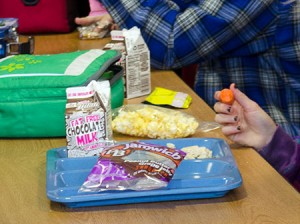 Some faculty members offered their memories…and opinions of their best and worst school lunches.
Some faculty members offered their memories…and opinions of their best and worst school lunches.
The best?
- Dr. Brad Burenheide (Secondary Social Studies) — “Chef salad with homemade rolls.”
- Dr. Tom Vontz (Elementary Social Studies) — “I honestly LOVE school lunch. The Bunza (we call them bierocks here) at Lincoln Southeast High School was the best, however. Everyone was in a good mood on Bunza day.”
- Dr. Sherri Martinie (Secondary Math) — “I always loved school pizza.”
- Dr. Vicki Sherbert (Secondary English/Language Arts, Speech/Theatre, Journalism) — “Homemade ham and cheese rolls.”
- Dr. Phillip Payne (Music Education) — “Never had time for school lunches… always traveling between schools during the lunch periods.”
And the worst?
- Dr. Tom Vontz (Elementary Social Studies) — “I’ve never had a bad school lunch. The question is mildly insulting.”
- Dr. Vicki Sherbert (Secondary English/Language Arts, Speech/Theatre, Journalism) — “Those little smiley-face potatoes (they look creepy, especially with ketchup).”
Make the Most of Diversity
 Don’t look now, but it’s almost time to flip your calendar to 2015! That’s right – you’ve almost made it through half a year as a teacher! Congratulations!
Don’t look now, but it’s almost time to flip your calendar to 2015! That’s right – you’ve almost made it through half a year as a teacher! Congratulations!
As we move toward winter break, keep in mind that, while we may consider this the holiday season, that definition can vary from person to person. Among the celebrations are Christmas, Hanukkah, and Kwanzaa.
Remember that, while one holiday may be celebrated by the majority of your students, we all need lessons about other cultures, celebrations, and traditions. Be sure to consider the diverse group of students you have in your classroom before saturating your room with decorations or items from one culture.
Use the time to open your students’ worlds to other classmates’ beliefs. Scholastic.com suggests creating travel centers to open their world. Check out their ideas at http://www.scholastic.com/teachers/lesson-plan/winter-holidays-celebrating-diversity. Such an awareness can bring a greater respect and appreciation and make our huge world just a little bit smaller…and friendlier.
The Art of Attending a Faculty Meeting
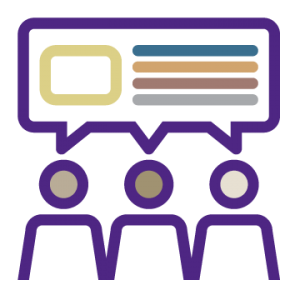 At this point, you’ve probably experienced a teaching tradition—which can’t be replicated anywhere else but within the walls of your school: The faculty meeting. You’ve probably attended two to three faculty meetings, and you’re trying to figure them out. We’ll try to address some of those burning questions you have about the ever-popular faculty meeting.
At this point, you’ve probably experienced a teaching tradition—which can’t be replicated anywhere else but within the walls of your school: The faculty meeting. You’ve probably attended two to three faculty meetings, and you’re trying to figure them out. We’ll try to address some of those burning questions you have about the ever-popular faculty meeting.
- Where do I sit? With my content teachers? My new friends? My mentor (who may or may not be my friend)? The faculty member who intimidates me the most? When you start teaching, sitting down at a faculty meeting will bring back visions of your life as a fifth-grader trying to find a spot on a school bus. Uncomfortable, humbling, awkward at best. Use the same approach you did then: Look for a smiling face—one that says “I’m not gonna steal your lunch money.” And maybe one that says, “Welcome, friend!”—only probably not quite so directly. At some meetings, you’ll find it beneficial to sit with those who are teaching similar content or age group as you; other times, by all means go with the most welcoming faces.
- How much should I say at these meetings? Should I speak my mind? There is no magic rule about this, though you’re encouraged to observe for the first few meetings. Jumping in immediately with your ideas can be a risky move, no matter how earth-shatteringly amazing you believe your ideas are. Often, as a new teacher, it’s best to quietly share your ideas with a colleague, who can help you avoid any issues that may have existed long before you joined the faculty.
- How do I deal with the colleague’s running commentary throughout the meeting? Well, smiling is always a good response—it’s neutral, not too supportive, not too negative. You’re new here, so take some time to figure out the power structure of the faculty. In time, you’ll know when it’s OK to laugh out loud and when it’s time to focus on—or at least pretend to—taking more notes about the topic at hand.
- And just what are my students doing while they’re roaming the halls before or after school? Probably…nothing good. That’s why we lock our classroom doors when we step away.
Don’t get us wrong; often faculty meetings can be beneficial—coming together in times of tragedy, celebration, and innovation. It’ll just take some time to figure out the key players and your role in these sessions.
USD 475 New Teachers Getting Started

Fifth-grade Teacher, Morris Hill Elementary
“I have really enjoyed the professional development that the district provides. I have gotten new and exciting ideas out of each and every PD I have gone to.”
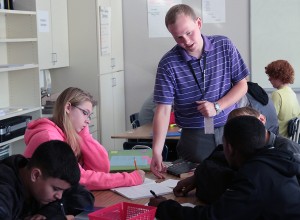
Math Teacher, Freshman Success Academy
“I’ve enjoyed the sense of community I feel while working here; everyone is willing to work together and help each other do what is best for each individual student. I’ve learned that it’s necessary to take the time to be thoroughly prepared for class and then be flexible with instruction while you’re actually teaching it.”
A Fitting Conclusion to Your Semester
 It’s November and, believe it or not, the end of your first semester is quickly approaching! You’re wanting a strong ending that provides a meaningful and engaging conclusion to the semester. Let’s see what some of your favorite C&I faculty have to offer:
It’s November and, believe it or not, the end of your first semester is quickly approaching! You’re wanting a strong ending that provides a meaningful and engaging conclusion to the semester. Let’s see what some of your favorite C&I faculty have to offer:
- Dr. Brad Burenheide (Secondary Social Studies) —“A simulation.”
- Dr. Sherri Martinie (Secondary Math) — “I’ve had students write a letter to future students giving them background, tips, suggestions, etc. They could also write a letter to themselves summarizing successes and setting goals. I’ve had students design board games around a particular unit or topic of study as a way to review for a final exam. Then they play each other’s games.”
- Dr. Tom Vontz (Elementary Social Studies) —“A comprehensive final exam or project that requires kids to put pieces of learning together in a new way.”
- Dr. Vicki Sherbert (Secondary English/Language Arts, Speech/Theatre, Journalism) —“Have students record brief book commercials to share with new students who may join the class throughout the semester.”
- Dr. Phillip Payne (Music Education) — “One of my favorites every year is the cover band project. Students cover their favorite Christmas song using non-traditional instruments or digital music production.”
Looking Ahead….
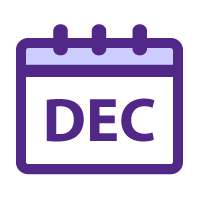 Next month, we’ll share classroom suggestions and teaching ideas as your first semester comes to an end. Be sure to read next month’s issue for:
Next month, we’ll share classroom suggestions and teaching ideas as your first semester comes to an end. Be sure to read next month’s issue for:
- Wrapping up your semester
- Add a little purple to your break
- Grades, grades, grades
- Another semester’s on the way!
- Top five items to have in your desk drawer
We Want to Hear From You!
![]() Do you have a question about classroom procedures? Or a suggestion for a topic we should address in Before the Bell? Want to add your name to our mailing list? Or provide a different email for our mailing list? We’d love to hear from you, so please email us at lagoodson@k-state.edu.
Do you have a question about classroom procedures? Or a suggestion for a topic we should address in Before the Bell? Want to add your name to our mailing list? Or provide a different email for our mailing list? We’d love to hear from you, so please email us at lagoodson@k-state.edu.
Go, COE Cats!
Picture Perfect
Many KSU College of Education graduates have their own classrooms for the first time this fall. Be sure to send us your photo so we can include you in an upcoming issue!
